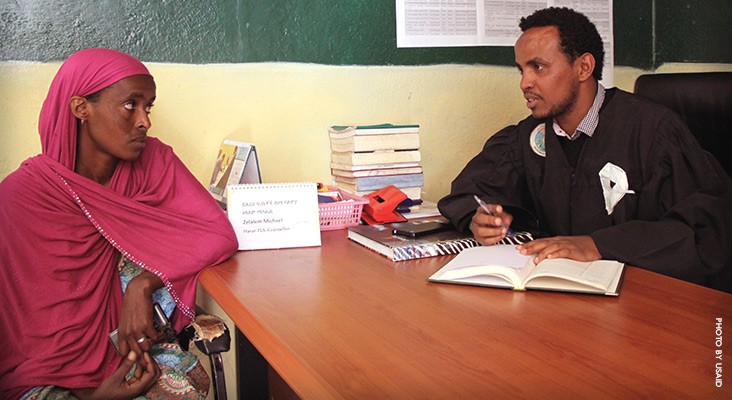Speeches Shim

While new leadership of the ruling party in 2018 has brought forth a surge of optimism in most quarters that democratic space will expand, stability is still fragile as ethnic and identity-based conflict prevails. During 2018, the new prime minister set forth an ambitious development agenda, yet many citizens feel that progress has been slow and that they have not yet reaped the benefits they had anticipated. Increased freedom of expression – while generally a positive step – has also opened some long-held grievances between ethnicities and regions and resulted in incidents of bloodshed and significant population displacements.
While addressing domestic challenges, Ethiopia has also benefited from – and contributed to – a decrease in regional tension marked by a détente with neighboring Eritrea. Despite these improvements, Ethiopia still faces potential instability from internal and external threats, including conflict in neighboring countries, and influences from malign states which undermine Ethiopia’s sovereignty and sustainable development trajectory. The most pressing challenges include helping the government in its efforts to change laws that had placed restrictions on freedom of expression and association, opening space for civil society organizations to contribute to Ethiopia’s progress and providing technical assistance to help Ethiopia prepare for free and fair elections in 2021.
In light of the changes underway, USAID has adjusted its overall objectives to prioritize assisting Ethiopia to implement its reform agenda, further increase democratic space and improve human rights. We promote American democratic values in Ethiopia and stress that well-functioning governance structures, trusted institutions and an open political system with a robust role for civil society can only serve to strengthen the country’s stability. Our support also builds the capacity of the Ethiopian judicial system to better serve citizens, ensure justice, and strengthen the rule of law. Through engagement with government actors and communities on conflict resolution, our work seeks to ensure that local actors are better equipped to maintain the peace in their communities.
USAID has also adopted a two-pronged strategy to mitigating conflict. First, USAID recognizes that well-intended assistance can cause harm or strengthen capacities for peace in conflict-prone or affected communities. To this end, USAID has committed to mainstreaming conflict sensitivity principles within its programming and operations.
KEY ACTIVITIES
- The USAID Feteh (Justice) Activity provides flexible, rapid response technical assistance to Ethiopia’s Attorney General’s Office, the Federal Supreme Court, and related government institutions involved in the legal and judicial reform process. Feteh also works closely with a host of civil society organizations and the media to ensure public input on democratic reforms and to improve citizen engagement and public consultation on proposed changes to the country’s legal and judicial framework.
- The USAID Ethiopia Election and Political Processes Program helps strengthen the capacity of officials from the National Election Board of Ethiopia (NEBE) to organize, administer, and conduct free and fair elections. U.S. support will utilize technology and leverage the reach of the Ethiopian media to educate the public about elections, while ensuring greater transparency and promoting more meaningful participation among all citizens in the political process—with a focus on women, youth, and other traditionally marginalized groups. USAID and its partners will also strengthen the capacity of Ethiopian civil society organizations and political parties to respond to the needs of all Ethiopians more effectively.
- Through the Office of Transition Initiatives, USAID supports a peaceful and inclusive reform process that provides a pathway to a more democratic Ethiopia. USAID/OTI prioritizes flexibility to remain responsive to changes in Ethiopia and programmatic objectives will evolve accordingly. Current activities aim to support key reform-minded institutions and actors that advance tangible and immediate reform to better address citizen’s needs and identify and mitigate potential conflict triggers in key target regions which have the potential to destabilize the reform process.
- Through support from the USAID Global Reconciliation Fund, the Borena Cross-boundary Initiative for Peace activity aims to improve community-level resilience to conflict through strategic interventions that promote reconciliation and enhance intergroup collaboration for conflict mitigation and peacebuilding in the Borena Zone.
- Also through support from the USAID Global Reconciliation Fund, USAID’s Conflict Mitigation and Reconciliation in Oromia-Somali Administration Boundary project seeks to bring the Oromo and Somali ethnic groups together to interact and engage constructively in a safe space to break down social and cultural barriers and promote peaceful coexistence.


Comment
Make a general inquiry or suggest an improvement.